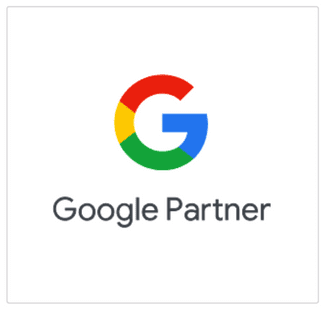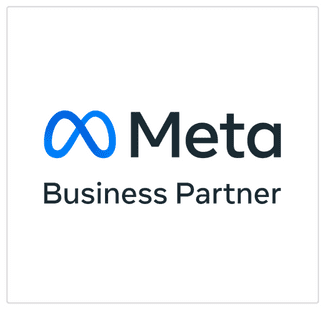If you came to read this article from a Google search, you want to know what SEO is, what the definition of this Digital Marketing service is and how it can help your business in the long run.
What is SEO – SEO definition and how is this term used in the Online Marketing industry in Romania?
What is SEO? SEO is short for “search engine optimization“, which means “search engine optimization“. Although considered a pleonasm, the keyword “SEO optimization” enjoys the highest number of monthly searches performed in Google Romania.
Shortly, SEO is the process by which a website can get traffic from organic, editorial or natural results displayed by search engines such as Google.
An SEO definition that is used in 99% of the articles covering this topic is: “SEO is the practice of increasing the quantity and quality of traffic received by a website through organic results from search engines”.
Ok, ok, but still… what exactly goes into SEO?
If you want to really understand the notion of SEO, read on and you’ll learn everything you need to know.
How does-the-SEO-ecosystem-work-and-help-you?
To better understand what SEO is and how it can help you drive traffic to your website and, by extension, potential customers to your business, you need to think of search engines as a website on which you perform a search (written or voice), in order to find a solution to a problem, and Google, Yahoo, Bing or any other search engine you use will respond with a long list of links to other web pages that have the potential to provide you with the answer.
Have you ever wondered what’s behind those magical lists of links?
Here’s how it works:
Let’s say the search engine you use is Google, it has a crawler that gathers information about all the content it can find on the Internet. The crawler brings all the information back to the search engine to build an index.
Then this index, which is powered by an algorithm that works on over 200 factors, tries to match your search to all the data collected to give you the best possible results.
If you want to know more clearly how search engines work, we invite you to read the article we wrote on the re7consulting blog.
One thing is certain: if you want your business website to have an increased visibility in Google, it must meet the criteria imposed by it and provide the best possible result to have a chance of being displayed in the top 3 – 5, or even on the 1st place in the list of organic results.
That’s why SEO is important for your business. Your website needs optimization to meet both the demanding requirements of search engines, and the specific needs of people who search the Internet every day via these engines.
Do you need professional SEO services for your business?
Optimization can take many forms and can consist of factors such as:
- Informative headings and descriptions of appropriate length
- Internal links
- Attracting external links through SEO ads
- Other issues that our team will address in future articles that will be published on this blog.
That being said, to dominate Google’s organic results you need the best SEO agency on the market!
Returning to the algorithm used by a search engine like Google, all you need to know is that it is secret, but all the known factors that are taken into account in the strategies to improve a site have been divided into two categories:
SEO On-Site and SEO Off-Site
These two categories incorporate the full spectrum of optimization tactics and strategies you can approach to improve your site’s presence in search engines and define two distinct directions of action: an internal one, which focuses on the optimized site, and an external one, which aims to increase site visibility through specific methods.
SEO On-Site:
A website without On-Site SEO is like a car without an engine. Why do I say this?
The rankings your website gets in Google are partially decided based on On-Site SEO factors. These factors consist of all the aspects that you can influence by making changes to your website. These include technical aspects (code quality and speed of the site, etc.) and aspects related to the content of the site (structure and quality of the texts, etc.).
You can’t start working on Off-Site SEO without solving everything related to On-Site SEO, because you won’t get the results you want and you will never achieve your goals.
SEO Off-Site:
This part of your SEO strategy includes attracting relevant links from other sites and any other marketing activities done off-site. Although these are the factors that can be hardest to influence, you should know that the most important aspect is the number and quality of links placed from other sites to your site.
Therefore, the more links you attract on sites relevant to your field of activity and target audience, the better positions you will get in a shorter time in Google.
Another aspect from an Off-Site SEO point of view that you need to keep in mind is your competition, because in some domains (niches) it is much harder to get to the top of the organic results due to strong competition, which will reduce your chances of attracting massive traffic from the organic results.
Traditional SEO vs. Holistic SEO
The explosive development of the digital ecosystem in recent years has produced a major shift in people’s digital consumption habits towards cross-channel information consumption behavior.
In other words, users are no longer limited to accessing a single digital platform to search for the solution to their need, but use a mix of platforms to increase their chances of finding the best solution, or to control the quality and veracity of information.
SEO specialists have also had to adapt to the new consumer behaviour, giving rise to what today is known as Holistic SEO.
What is Holistic SEO?
Holistic SEO defines an entire ecosystem of tactics and strategies that decisively shifts the focus from optimizing for the technical elements of search engines to people and incorporates the entire mix of digital marketing services to achieve the proposed SEO goals.
Holistic SEO also rejects any attempt to trick search engines with black hat SEO strategies and the people who visit the site, instead tackling integrated strategies with sustainable results over time.
We, at re7consulting agency, build Holistic SEO strategies to achieve specific goals set for both us and our partners.
In our Holistic SEO strategies we focus on aspects such as:
- Targeted keywords
- The technical elements of the site
- User Experience (UX)
- Site architecture and links for easy navigation (UI – User Interface)
- Continuing on the site
- Internal links profile, useful and relevant to visitors
- External links profile, qualitative and quantitative
- Integrating SEO with Content Marketing, Pay-Per-Click Marketing, Social Media Marketing, Email Marketing, etc.
Important KPIs in SEO
1. Traffic quality
You can attract all the visitors in the world, but if they come to your site because Google tells them your business is a car dealership, when in fact your business is a car service, that traffic can never be considered quality traffic.
2. Amount of traffic
Once you’ve managed to reach the right people for your business through search engine results pages (SERPs), you’ll need to attract as much traffic as possible.
3. Organic results:
Normally, a results page provided by a search engine such as Google will also display a section with ads placed via Google Ads. However, in order to be visible in that section, you will have to pay considerable amounts to Google.
If your marketing budget doesn’t allow you to do this, the most effective method is to rely on an SEO strategy for attracting organic traffic for which you don’t pay any amount directly to Google.
However, this doesn’t mean that you get that traffic for free, just that you don’t have to pay money to Google every time someone clicks on your site, as is the case with paid ads placed through Google Ads.
Tools used for SEO
However, in order for an SEO specialist to carry out their daily work, they have a few tools that they constantly use when implementing SEO campaigns.
The most important tools used for SEO are Google Search Console, Google Lighthouse, Google Trends, SEMrush, Screaming Frog, Yoast SEO (for sites built with the WordPress CMS), Majestic, MOZ and Pingdom.
Conclusion:
SEO is a strategic way of thinking, not an inert list of practices. That’s why this service requires a full and enduring commitment to understanding the mechanisms that underlie the workings of search engines and the causal and correlational relationships these mechanisms achieve.
You, however, have two choices: either start today to delve into the entire ecosystem that defines what SEO is, or seek the help of SEO specialists able to deliver the KPIs you want.
In either case, however, there are two questions you need to answer, namely:
Is there interest in search engines for my business products or services? If so, is there such a high volume of interest that it’s worth investing in an SEO campaign for my business to get in front of people who are interested in what I sell?
If the answer to both questions is “yes”, your business is in vital need of SEO optimization and we recommend that you contact us to work together to help your business succeed in organic search engine results.







